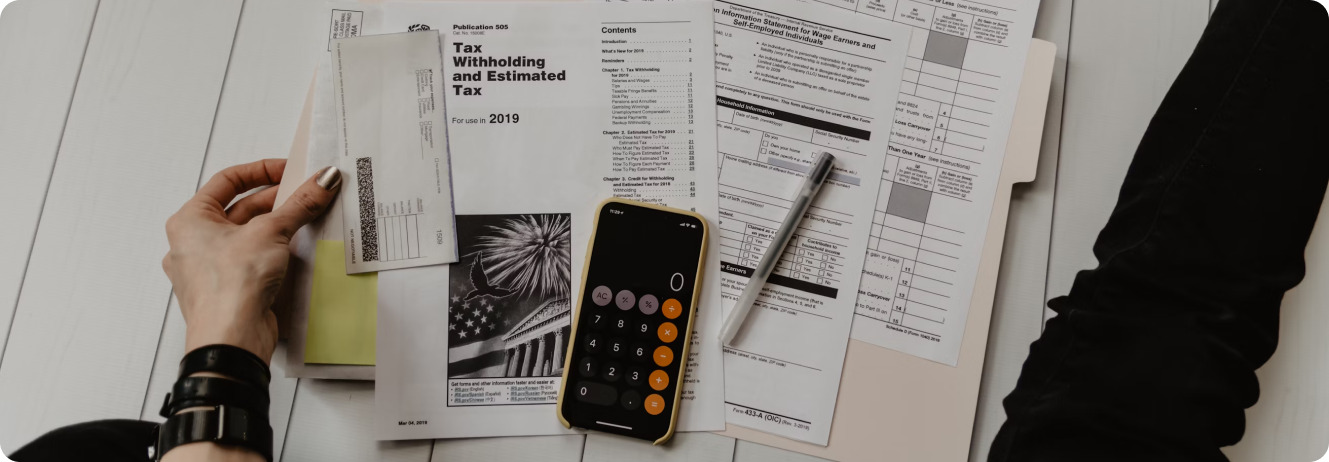Your Bookkeeping Year-End Checklist – 8 Tips to Get Your Books Ready

Reema
Updated: March 2, 2024
As the year draws to a close, we’ve put together a bookkeeping year-end checklist to help you get your books ready for the new year. Timely, accurate bookkeeping is critical to the success of any business. It is important to keep your books updated, especially to maintain year-end accuracy.
Staying on top of your books may seem overwhelming, especially in these unusual times. That’s why we’ve compiled the following list of tips, so that you can start the new year on the right foot.
We’ve outlined some of the things you should take care of as part of your Bookkeeping Year-End Checklist:
1. Get information together for 1099 forms.
Did you pay any vendors or contractors more than $600 this year? If so, you’ll need to provide them and the IRS with a 1099-MISC form by January 31st of the new year. To do this, you need to make sure you have a W-9 on file for every independent contractor you worked with. If you don’t already have W-9s on file, ensure that you get those from your vendors before the end of the year.
2. Prepare for this year’s taxes as well as first-quarter estimated taxes for the new year.
You shouldn’t wait until April to gather all the documents you need to file your taxes. Before the year ends, close out your books and organize all the information you will need for tax season. Have you already done this and estimated your tax liability for this year? Then, you should also be able to determine how much you will need to pay in estimated taxes for the first quarter of next year.
3. Make sure you’ve recorded all your transactions as part of your bookkeeping year-end checklist.
This is an essential step to take before the end of the year. Before the year ends, check your accounting software to verify that you’ve recorded all business transactions. That includes bills and invoices from the past year. Are there any outstanding or uncategorized transactions? If so, you won’t be able to proceed without reconciling your accounts.
4. Reconcile all your books and accounts.
Account reconciliation is a must for every business owner. But what exactly does reconciling your bank and credit card accounts mean? Account reconciliation is a process to ensure you’ve accounted for all transactions in a given year. “Reconciling your accounts” means making sure your financial records match your bank statements. If they don’t match, then there is a discrepancy in your accounting that you need to find and fix. Ultimately, you should make sure that every transaction is well-documented and accounted for.
5. Clean up and review your accounts payable and accounts receivable.
To start the new year off well, make sure you’ve collected on all invoices and paid all your vendors. To do this, review both your accounts payable and accounts receivable. A summary of your accounts payable will show you whether you’ve missed any payments to vendors. A review of your accounts receivable will show you if any customers have skipped out on paying you. Using accounting and invoicing software to conduct these reviews can be helpful.
6. Collect any invoices that are past their due date as part of your bookkeeping year-end checklist.
Once you review your accounts, you can figure out whether you’ve issued any unpaid invoices. Do you have clients that haven’t paid you for your services? Now is the time to approach them and try to collect that payment. When you reach out to them, you can set clearer payment terms and send them regular reminders. You can even offer them a payment plan. What’s important is that you collect on these invoices before the end of the year. That way, you won’t have to contend with outstanding customer debt heading into the new year. If customers still fail to pay, you can write them off as uncollectible debts when filing your taxes.

7. Verify employee data before you issue W2s.
Before you issue W2s to your employees, make sure you’ve gathered the correct data from them. If there are any errors on your W2 forms, you may face penalties. Errors can range from misspelled names or missing information, so be attentive. You should also record all employee paychecks and bonuses before the end of the year.
8. Review your financial statements.
This is one of the last things you should do before you close out your books for the year. Once you reconcile your accounts and collect on invoices, it’s time for one last review. Pull up balance sheets, income statements, and other documents related to your business. Then, go through each one to make sure you don’t spot any discrepancies or unexpected figures. Conducting one final review will help you catch any mistakes you may have missed. Doing so will also ensure that your bookkeeping is as thorough and accurate as possible.
Accounting Software helps when it comes to your Bookkeeping Year-End Checklist. Even if you’re diligent in getting your books ready for the new year, you may still slip up. This is where accounting software can be useful. Accounting software tools like QuickBooks, Sage 50Cloud, and Xero can help you out. These tools help businesses maintain accurate reporting, manage invoicing, and store financial data.
